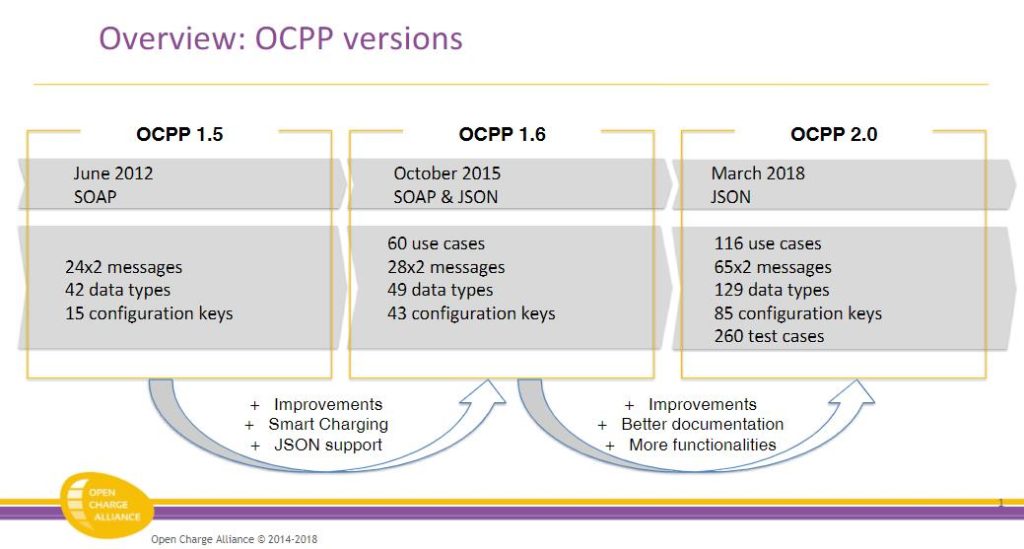Time:
OCPP stands for "Open Charge Point Protocol". It is simply a syntax (language) used to communicate between a networked charging station and a charging management system(CSMS).

Also read: CSMS
CSMS is a cloud-based backend system managed by the company operating the charging station. The EVSE (electric vehicle charging equipment comprising of the charger and associated electrical infrastructure) communicates with the CSMS to help Ev drivers locate charging facilities. reserve slots. get authorization and make payment. CSMS also helps the company by fixing tariffs to be charged, generating reports, run diagnostics, schedule, and monitoring charging stations
OCPP was originally developed in 2009 by the E-Laad foundation (now ElaadNL) with the aim to create an open communication standard that would allow the Dutch charging stations and central systems from different vendors to easily communicate with each other.
Now it is managed by the Open Charge Alliance(OCA) to promote open standards for EV charging networks globally.
Below are three main players in the field of EV charging that need the powerful functions of OCPP:
EVSE Manufacturers: These are hardware companies that manufacture EV chargers.
CSMS Software Providers: Most are software companies that build charging station management systems (CSMS).
CPOs: Charge point operators build charging station networks and own customer relationships.
It is common for these three to be separate businesses, but in some cases, single companies choose to take the role of two or all three of the above. For example, Grasen is the EVSE manufacturer and also provides CSMS.
Following are some basic operations of EV chargers with OCPP
Following are the released versions of OCPP by Open Charge Alliance:

As for now, most of the EV chargers are OCPP 1.6 compatible, the newest version OCPP 2.0.1. includes improvements in Device Management, Security enhancements, and support for ISO 15118 (Plug & Charge).
If the devices you are managing already support 2.0.1 and you plan to use the new features, you may choose 2.0.1. But, if you are good with the set of functionalities that 1.6 provides, given its adoption and wide community we would recommend starting from it and upgrading later to 2.0.1 when it gets more traction outside Open Charge Alliance.
Reliability and uptime are critical for all EV charging service providers. Service downtime due to hardware faults can cause loss. Purchasers may prefer to mix and match hardware from multiple suppliers. One reason for this can be the need to diversify their hardware supply chain. Another reason is to verify the features of one vendor vs. another. As long as the EV charge station is OCPP compatible, like Grasen's, the owners can manage them remotely via any 3rd party's OCPP backend.
Submit Request